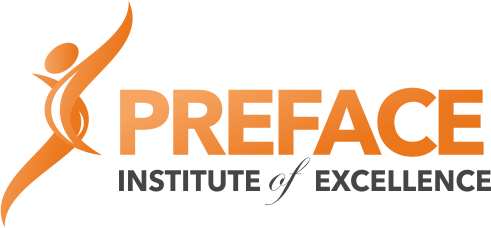Protect Your Boarding School Child from Cyberbullying in the Digital Age
In today’s digital age, cyberbullying has become a significant concern, particularly among students. For parents of boarding school students, the issue can be even more worrisome due to the physical distance from their child. Nevertheless, there are several steps you can take to protect your child from cyberbullying and ensure they have a safe and positive online experience.
Understanding Cyberbullying
Cyberbullying involves using technology to harass, threaten, or humiliate someone. It can occur through various platforms such as social media, messaging apps, and online forums. Unlike traditional bullying, cyberbullying can happen 24/7, and the perpetrator can remain anonymous, making it difficult to identify and stop.
Cyberbullying can take many forms, including but not limited to:
- Harassment: Repeatedly sending offensive, rude, and insulting messages.
- Denigration: Spreading false and malicious rumors to damage someone’s reputation.
- Impersonation: Pretending to be someone else to make that person look bad or to send out mean messages in their name.
- Outing and Trickery: Sharing someone’s secrets or embarrassing information online. This often involves tricking someone into revealing secrets or personal information.
- Exclusion: Intentionally excluding someone from an online group.
- Cyberstalking: Repeated, intense harassment that includes threats or creates significant fear.
Given the nature of the internet, these actions can have a widespread impact, reaching an audience far beyond the school community, and can lead to severe emotional and psychological harm for the victim.
Signs Your Child Might Be a Victim
Recognizing the signs that your child might be experiencing cyberbullying is critical for early intervention. These signs can often be subtle and may overlap with typical teenage behavior, making it essential to be vigilant and observant. Some key indicators include:
- Sudden Withdrawal from Social Activities or Friends: A noticeable decline in participation in social activities, reluctance to meet friends, or isolation from peer groups.
- Unexplained Anxiety or Irritability: Sudden mood swings, increased irritability, or unexplained anxiety, particularly after using their phone or computer.
- Changes in Eating or Sleeping Patterns: Significant changes in appetite or sleep patterns, such as insomnia, nightmares, or sleeping more than usual.
- Reluctance to Use Their Phone or Computer: Hesitation or refusal to use electronic devices, which they previously enjoyed using.
- Decline in Academic Performance: A sudden drop in grades or a lack of interest in schoolwork and academic activities.
If you notice any of these signs, it’s crucial to address them promptly. Early intervention can prevent further harm and help your child recover from the emotional and psychological effects of cyberbullying.
Open Communication
Creating an open line of communication is one of the most effective ways to combat cyberbullying. Establishing a trusting relationship with your child where they feel comfortable discussing their online experiences is essential. Here are some tips to foster open communication:
- Create a Safe Space: Make sure your child knows that they can talk to you about anything without fear of judgment or punishment. This includes discussing their online interactions.
- Ask Open-Ended Questions: Encourage conversation by asking open-ended questions about their day, their friends, and their online activities.
- Share Your Own Experiences: Relate to your child by sharing your own experiences with online interactions, both positive and negative.
- Listen Actively: Show genuine interest in what your child has to say. Pay attention to their words, tone, and body language.
- Regular Check-Ins: Schedule regular times to check in with your child about their digital life. This helps normalize the conversation and keeps you informed about what’s happening.
By maintaining open communication, you can stay informed about your child’s online experiences and intervene early if they encounter any problems.
Educate Your Child
Educating your child about the importance of online safety and the impact of their digital footprint is crucial. This involves teaching them about responsible online behavior, the potential risks of sharing personal information, and how to protect themselves from cyberbullying. Key topics to cover include:
- Privacy Settings: Teach your child how to use privacy settings on social media platforms to control who can see their posts and personal information.
- Personal Information: Emphasize the importance of not sharing personal information, such as their address, phone number, or school details, online.
- Digital Footprint: Explain that anything posted online can be permanent and potentially seen by a vast audience. Encourage them to think twice before posting or sharing anything.
- Recognizing Cyberbullying: Help your child understand what cyberbullying is and how to recognize it. This includes knowing the different forms of cyberbullying and the signs to watch out for.
- Safe Online Practices: Encourage your child to use strong passwords, avoid clicking on suspicious links, and not engage with strangers online.
By educating your child about these topics, you empower them to navigate the digital world safely and responsibly.
Monitor Online Activity
While respecting your child’s privacy is important, it’s also essential to monitor their online activity, especially if you suspect cyberbullying. Monitoring does not mean invading their privacy but rather being aware of their online interactions to ensure their safety. Here are some strategies for monitoring your child’s online activity:
- Parental Control Apps: Use parental control apps to keep track of your child’s social media use, screen time, and the apps they download. These tools can help you identify any red flags early on.
- Set Boundaries: Establish clear rules about internet usage, including which websites they can visit, how much time they can spend online, and what information they can share.
- Regular Device Checks: Occasionally check your child’s devices for any signs of cyberbullying, such as threatening messages or interactions with unfamiliar people.
- Stay Informed: Keep up with the latest social media trends and apps that your child uses. Understanding how these platforms work can help you better monitor their activity.
Balancing monitoring with respecting your child’s privacy can be challenging, but it’s essential for ensuring their safety online.
Encourage Positive Online Behavior
Encouraging your child to engage in positive online behavior and be a responsible digital citizen is vital for creating a safer online environment. Teach them the importance of treating others with respect and standing up against bullying. Some ways to promote positive online behavior include:
- Modeling Respectful Behavior: Demonstrate respectful and kind behavior in your own online interactions. Children often learn by observing their parents.
- Encouraging Empathy: Teach your child to empathize with others and consider how their words and actions can impact others online.
- Promoting Kindness: Encourage your child to spread positivity online by sharing uplifting content and supporting their friends.
- Standing Up Against Bullying: Teach your child how to stand up against bullying by reporting it, supporting the victim, and not participating in or encouraging negative behavior.
- Joining Positive Communities: Encourage your child to join online communities that promote positive interactions and shared interests.
By fostering a positive online presence, your child can contribute to a safer and more inclusive digital environment.
Report and Block Bullies
If your child is being cyberbullied, it’s crucial to take immediate action to stop the bullying and protect your child. Encourage your child to block the bully and report the behavior to the platform or app. Most social media platforms have policies and tools in place to deal with cyberbullying. Here’s how you can help your child report and block bullies:
- Document the Bullying: Keep records of the bullying incidents, including screenshots, messages, and any other relevant information. This documentation can be useful if further action is needed.
- Use Platform Tools: Teach your child how to use the reporting and blocking tools available on social media platforms. Each platform has specific steps for reporting abusive behavior.
- Contact the School: Inform the boarding school about the cyberbullying. Many schools have policies and procedures in place to handle such incidents and can provide additional support.
- Seek Legal Help: In severe cases, consider seeking legal advice. Some forms of cyberbullying may violate laws, and legal action may be necessary.
Taking these steps can help prevent the bully from targeting others and provide evidence if further action is needed.
Seek Professional Help
Sometimes, dealing with cyberbullying requires professional intervention. If your child is struggling to cope, consider seeking help from a counselor or psychologist. Many boarding schools offer mental health support services, so don’t hesitate to reach out to the school for assistance. Here’s how to seek professional help:
- School Counselors: Many boarding schools have counselors who are trained to handle issues like cyberbullying. They can provide immediate support and guidance.
- Therapists and Psychologists: If your child needs more intensive support, consider finding a therapist or psychologist who specializes in working with adolescents. Therapy can help your child develop coping strategies and rebuild their self-esteem.
- Support Groups: Look for support groups for victims of cyberbullying. These groups can provide a safe space for your child to share their experiences and connect with others who have faced similar challenges.
- Online Resources: There are many online resources and hotlines available that offer support and advice for dealing with cyberbullying. These can be valuable tools for both you and your child.
Professional help can be instrumental in helping your child recover from the emotional and psychological effects of cyberbullying.
Support and Reassure Your Child
Your support and reassurance can make a significant difference in how your child deals with cyberbullying. Here’s how you can support and reassure your child:
- Be There for Them: Let your child know that they are not alone and that you are there to help them through this difficult time.
- Celebrate Their Strengths: Remind your child of their strengths and achievements. Celebrate their positive qualities and accomplishments.
- Provide Emotional Support: Offer a listening ear and a shoulder to lean on. Sometimes, just knowing that someone cares can make a big difference.
- Encourage Positive Activities: Encourage your child to engage in activities they enjoy and that make them feel good about themselves. This can help boost their self-esteem and distract them from negative online experiences.
- Send Care Packages: Sending a well-stocked tuck box from Boarding Bites can bring a smile to your child’s face. Including some of their favorite snacks like Hippeas or Proper Corn shows that you’re thinking of them and provides a comforting reminder of home.
Supporting and reassuring your child can help them feel more confident and resilient in the face of cyberbullying.
Conclusion
Cyberbullying is a serious issue, but with the right strategies and support, you can help your child navigate it safely. Open communication, education, and monitoring are key components in protecting your child from online threats. By fostering a positive online presence, teaching your child to recognize and report bullying, and seeking professional help when needed, you can ensure your child’s safety and well-being in the digital world.
Remember, Preface Institute is always here to support you and your child with delicious and nutritious snacks to brighten their day. Your ongoing support and reassurance are vital in helping your child cope with and overcome the challenges of cyberbullying. Together, you can create a safe and positive online environment for your child.
Preface Institute: Nurturing Excellence in Education
Overview
Preface Institute stands as a beacon of educational excellence, dedicated to preparing students for the demanding world of boarding school education and providing comprehensive academic support for International Baccalaureate (IB) students. Our mission is to empower students with the knowledge, skills, and confidence they need to excel academically and thrive in their personal and professional lives.
Boarding School Entrance Preparation
Preparing for entrance into prestigious boarding schools is a challenging endeavor that requires a unique blend of academic proficiency, critical thinking, and emotional resilience. At Preface Institute, we specialize in guiding students through this rigorous process, ensuring they are well-prepared to meet the high standards set by elite institutions.
Personalized Learning Plans
Understanding that each student is unique, we develop personalized learning plans tailored to their specific strengths, weaknesses, and aspirations. Our experienced educators assess students’ current academic levels and design a customized curriculum that targets key areas for improvement. This personalized approach ensures that students receive the focused attention they need to excel in entrance exams and interviews.
Comprehensive Curriculum
Our curriculum covers a wide range of subjects, including Mathematics, English, Science, and Humanities, aligning with the requirements of top boarding schools. We emphasize critical thinking, problem-solving, and analytical skills, ensuring students are not only well-versed in core subjects but also capable of tackling complex questions with confidence.
Mock Interviews and Test Preparation
In addition to academic tutoring, we provide extensive training for entrance exams and interviews. Our mock interviews simulate the actual interview environment, helping students build confidence and improve their communication skills. We also offer practice tests that mimic the format and difficulty level of real entrance exams, allowing students to familiarize themselves with the testing process and identify areas for improvement.
Academic Support for IB Students
The International Baccalaureate (IB) program is renowned for its rigorous academic standards and holistic approach to education. At Preface Institute, we offer specialized support to IB students, helping them navigate the challenges of this demanding curriculum and achieve their academic goals.
Subject-Specific Tutoring
Our team of expert educators provides subject-specific tutoring in all IB subjects, including Mathematics, Sciences, Languages, and Humanities. We focus on deepening students’ understanding of key concepts, enhancing their analytical skills, and improving their ability to apply knowledge in various contexts. Our goal is to help students excel in their coursework and achieve high scores in their IB exams.
Extended Essay and TOK Support
The Extended Essay (EE) and Theory of Knowledge (TOK) are integral components of the IB curriculum, requiring students to engage in independent research and critical reflection. We offer dedicated support for these elements, guiding students through the research process, helping them refine their arguments, and providing feedback on their drafts. Our support ensures that students produce high-quality essays and presentations that meet the IB’s rigorous standards.
Time Management and Study Skills
Balancing the demands of the IB program requires effective time management and strong study skills. At Preface Institute, we provide students with strategies to manage their workload, prioritize tasks, and study efficiently. Our goal is to help students develop habits that will serve them well not only in the IB program but also in their future academic and professional endeavors.
Testimonials
Vidhi’s Experience
“Preface Institute has been a game-changer for me. I was really nervous about applying to boarding schools, but the personalized learning plan and mock interviews helped me feel prepared and confident. The teachers are incredibly supportive and always available to help with any questions I have. Thanks to Preface Institute, I got accepted into my dream boarding school and I’m excited about the future!”
Samarth Journey
“The IB program is really challenging, but Preface Institute has made it manageable. The subject-specific tutoring has been invaluable, especially for difficult subjects like Mathematics and Physics. The support for my Extended Essay and TOK was fantastic – I couldn’t have done it without their guidance. Preface Institute has truly made a difference in my academic journey, and I can’t thank them enough.”
Raghav’s Success Story
“Preface Institute has been a lifeline throughout my IB years. The tutors are not only knowledgeable but also really approachable and understanding. They helped me develop effective study habits and manage my time better, which has been crucial in handling the IB workload. The personalized attention and support have been amazing, and I’m so grateful for everything they’ve done to help me succeed.”
Conclusion
At Preface Institute, we are committed to nurturing the potential of each student, equipping them with the tools they need to succeed in boarding school entrance exams and the IB program. Our personalized approach, expert educators, and comprehensive support systems ensure that students are well-prepared to meet academic challenges and achieve their goals. Whether it’s gaining admission to a prestigious boarding school or excelling in the IB program, Preface Institute is dedicated to helping students realize their full potential and pave the way for a bright future.









